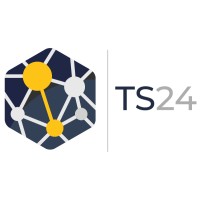How to Become A Professional Translator: A Guide to Starting Your Career
No matter how many translation tools enter the AI market, there will almost always be a demand for human translators. Why?
Professional translators working with agencies or as freelancers bring nuance and a human-like feel to the translated content. They are also more accurate, especially regarding cultural contexts, idiomatic expressions, and local dialects.
But how do you become a professional translator? It’s not something you can master overnight. However, our guide will help you set the right path toward starting a career as a translator.
What Does It Mean to Be a Translator?
A translator is an expert who speaks two or more languages and has received the relevant qualifications for this career.
As a translator, you should be able to translate the content and context of one language to another without being set back by any linguistic complexities. Simply put, it means that nothing should be lost in translation.
While some translators work as general professionals, others may specialise in a specific field. For example, as a medical expert proficient in two languages, you could work as a medical translator once you have gained your translation qualifications. The same applies to a solicitor who can speak two or more languages.
But here’s the important part; you shouldn’t merely know the conversational language. To work as a niche expert, you must speak the target language at a native level (or even beyond!)
Roles and Responsibilities of a Professional Translator
In today’s world, translators can find work in different fields. Their roles and responsibilities also often depend on their line of work. But here are some standard duties of a translator.
- Translating content from one language to another without changing its meaning, context, or nuance
- Conducting research to ensure the context remains consistent throughout the translation
- Translating and keeping the audience’s understanding in mind
- Working with teams and other professionals to ensure translational accuracy
- Following the jargon and technical requirements of a content’s format.
- Proofreading translated content if needed
- Creating glossaries that a client can use for future translations as well as using glossaries to assist in their translation
As mentioned, a translator’s workplace will also determine their responsibilities. For example, a medical translator will:
- Conduct translations of medical records/documents
- Translate recently published data for different audiences
- Translate medical notes or communications for patients
Similarly, professional translators working with an expert UK translation agency focusing on international marketing will have to translate marketing content. They should be in the know regarding their target region, keep up with and be in the know with the latest marketing trends and style of language used in this industry.
Types of Translators
Here are some common types of translators.
Language Translator
It is the most common type of translation service available. A language translator translates materials, such as contracts, business reports, manuals, company brochures, marketing content, healthcare leaflets, financial documents, etc.
Localisation/ Transcreation Expert
A transcreation expert translates content from one language and recreates it in another, preserving the original message, style, and impact. They go beyond literal translation, adapting the text to resonate with the target audience while considering cultural nuances and maintaining the intended emotional response. It takes years and skill to become a transcreation specialist.
Transcription Expert
Transcription experts work with video and audio materials, like legal recordings, interviews, promotional videos, etc. They transcribe video and audio content from one language to another. In some cases, they have to produce a direct translation; however, in most cases, clients request that the transcriber provide both the translation and the transcription of the source text with time codes.
Skills Required to Be a Translator
Besides translation skills, you should also be confident with IT since most clients use word-processing software like Microsoft Word. In some cases, clients may even want you to reformat a certificate to mirror the original as much as possible, so being skilled in using your computer is essential. Cultural awareness, attention to detail, responsibility, and compliance with confidentiality rules are also good skills.
Being a translator means mainly working independently and directly with a project manager. But you’ll still have to communicate with clients from time to time. So, the following skills are just as essential:
- Communication skills
- Interpersonal skills
- Collaboration skills
- Teamwork skills
- Time management
- Organisational skills
How to Start Your Career as a Translator?
Two typical requirements for becoming a translator are a bachelor’s degree and some years of experience in the source and target language. With these things at your disposal, you can start a career in translation by following these steps.
Become Fluent in a Second Language
If you still need to become proficient in a second language, choose a language where you can immerse yourself in the culture and become fluent. For instance, you can take a language course if you’re in school. The earlier you begin, the better.
Many university degrees also have add-on linguistic courses. Read everything from books and articles to published material in this language to improve your grammar structure and cultural awareness.
Get Specialised Training
Even if you’re already native in your language and fluent in a second language, it helps to get specialised training. Many universities have specialised programs to prepare you for this career.
Get Relevant Certification
Before an agency works with you as a translator, they’d like to see some certification. However, here in the UK, we do not have an accredited body that certifies translators or interpreters, but becoming a member of bodies such as the ITI and CIOL is an excellent start if you are interested in becoming a legal translator.
Target an Industry
Select a field and learn its jargon if a general translation route is not your thing. For example, if you have a medical background or are interested in healthcare, get familiar with its terminologies, language, formatting, etc.
Get Work Experience
Now, you’re all set to start looking for jobs. Build relationships with translation agencies by working as a freelance translator for long-term work. Over time, if you provide excellent service, you can quickly become a go-to translator in your chosen language pair.
Skills That Affect Translator Salaries
Did you know having specific translation skills can actually help increase your earnings as a translator? For example, translators with editing skills earn 43% more than average, while those with localisation skills make 10% higher.
The most lucrative languages tend to be the ones with few registered and certified translators in the United Kingdom. For example, Japanese, Korean, Hebrew or Swedish. On the other hand, popular European languages such as French, Spanish, Polish, German or Portuguese, although are more competitive due to the number of translators available, are generally speaking in more demand, and so you can receive a higher number of projects.
The Takeaway
Becoming a translator is a challenging but worthwhile journey, but if you have the language skill and qualifications, you can turn around accurate translations promptly and can format your work, it can be a great career path, plus you get to work remotely & choose your own working hours and workload!
About the Author
Translation Services 24 (TS24) is a professional London translation agency offering expert services in over 200 languages. We work with clients in all corporate and public industries and specialise in sector-specific linguistic solutions. With over a decade of experience in the industry, 15+ million words converted every year and 100,000+ projects completed, TS24 is a leading provider of expert translations and interpretation services and an officially certified member of the ATC. Contact TS24 here.
Follow Translation Services 24 on Social Media








